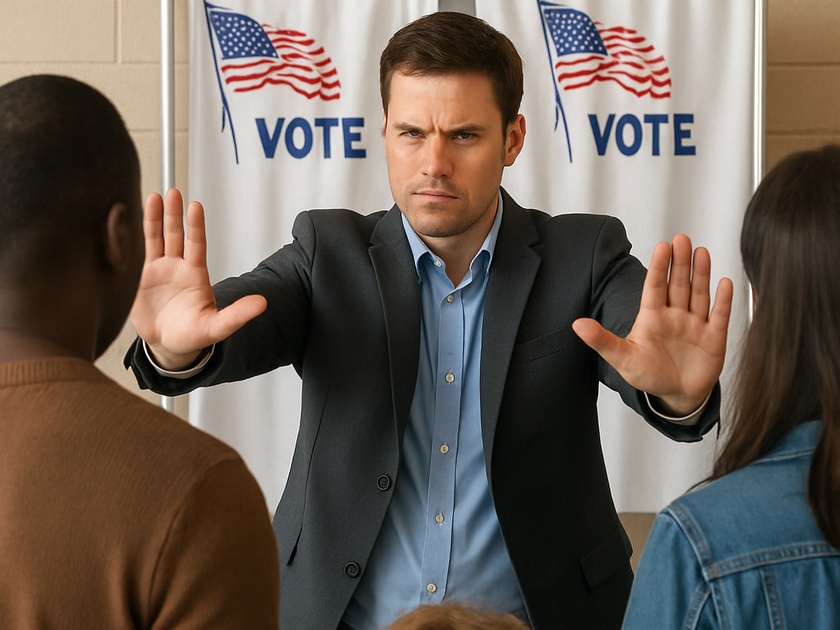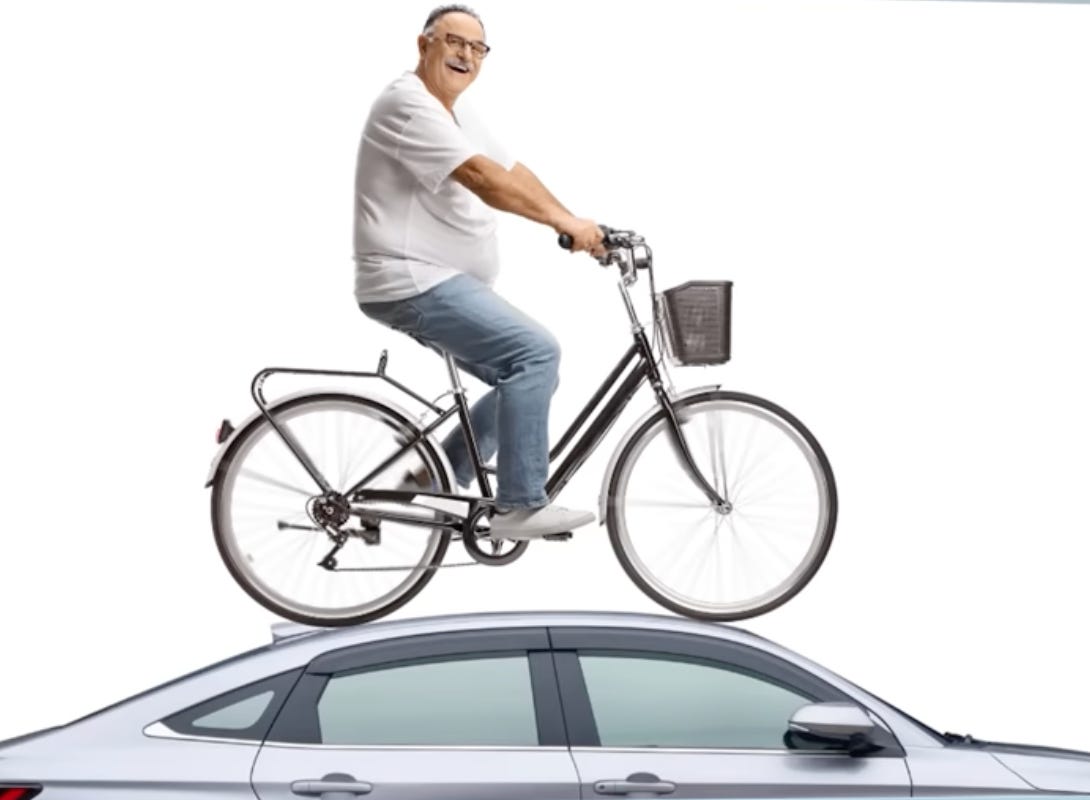Mayor Suarez and Mayor Daniella, your constituents have been expressing mounting frustrations concerning the increasing housing unaffordably and the homelessness crisis.
In your latest interview with Channel 7News, if I am paraphrasing correctly, Mayor Levine Cava, you told the reporters that we were facing an unaffordability crisis, and that although we had been extremely aggressive about building new houses, preventing eviction, and helping to keep people where they are, the reality is that we have the most expensive housing in the markets because people are moving here with more money and they are driving up the prices (Royer,2024).
Madame Mayor, that is misleading and factually inaccurate. Miami is not even in the top 20 cities with highest move-ins, but instead, it is the 3rd city with the highest move-outs in the United States (Keight, 2024). Florida is the 7th state with high move-ins (Albert, 2024), but it is also the 9th worst state for low income families to live (RewardExpert). Possibly yes, the newcomers in Miami are the super-rich but if the poor become homeless and cannot afford to stay here, who will pick up the crumbs of your rich donors? The only reason they are considered as super-rich is because others are as very poor. Who would be their maid, governess, or tutor? Who would be the gardener, accountant, handyman and nanny if the lower income families have nowhere to stay? Mayor Suarez, your administration’s latest solution in 2022 was to force the homeless to live in Virginia Key (Shafer). Madame Mayor Cava and Mayor Suarez, your constituents are asking if it is your administration’s realistic belief that the super-rich will allow people living in a homeless encampment, next to the sewage system, walk in their home near their children and their wealth?
Are there even any sustainability plans in regard to that? The Miami City Commissioners are calling this plan a “transition zone” where housing, food, showers, and even outreach services will be provided to them (Shafer). But how is that plan coming along? Where is the budget for that resolution that will host only 100 people? What will be the police and security settings to prevent, unfortunately and inevitably, cases of violence and human trafficking? And what will be specifically those outreach services that we will be paying for? We would like to know.
There is also this inevitability that we need to discuss. If homeless people, that are predominately black, are to be arrested, fined $500 and put in jail or in the encampment on the Virginia Key, wouldn’t it also signal the rest of the state to transfer the homeless to the island? That is what David Peery, chair of the Miami Coalition to Advance Racial Equity (MCARE) said in an emailed action alert. “It is not a crime to be poor and unable to afford a home,” he also added (
Funcheon, 2023
). The Floridian voters didn’t choose to become homeless. It is life adversities that drag them to those situations. And your county has become one of the most economically hostile towards lower-income families. What have you done for us lately besides looking good on cameras and shoving poor people in shelters ("Out of Sight, Out of Mind)? What’s in it for us? That is what they want to know. Miami cities are no longer in the
top five attractive Floridian cities
to the superrich (Alonshur, 2024). They are not even in the top three most affluent neighborhoods (Stack, 2024). Hence the wealthy newcomers that you are accusing of driving up the prices have become more interested in the Northern and Western Floridian areas instead (Naples, Palm Beach, Jacksonville, Ocala…), where it is less crowded and a lot cheaper (Alonshur, 2024). Even the rich want to save money. I couldn’t agree less with your constituents, your county’s administration has gotten complacent. You do not deserve out votes.
Their frustrations are not misplaced. We are experiencing a new wave of Miami residents in lack of permanent housing or at risk of becoming homeless (Kalesnikaite, 2014). Just like some of our constituents, I am a public commuter myself. And for every bus I ride each week, there are always 2 different homeless. Every time I get on a bus, there are 2 different faces, and your constituents are reporting the same facts. There are the functional homeless people, meaning that they wear close to business attire. They have cellphones and laptops, but they are homeless. Madam Mayor, we have 245,700 riders daily in Miami Dade County (DTPW). If so many homeless could be seen in one day, needless to say, the official number reported (3,734) in your county is inaccurate and severely undercounted (Pacenti, 2023)
). Thus, it is imperative that your administrations address those issues, investigate and formulate a plan for a sustainable community that will aggressively reduce homelessness, and prevent crimes, by utilizing our social and natural capitals (Kalesnikaite, 2014). Afterall Madame Mayor, the homeless are also your constituents.
[On the topic of public transportation in Miami Dade, for years now the elevators and escalators have not been working properly. It is a gamble to find one working. The evening Northbound train, coming from Dadeland South Station, is another gamble. The train at the University Metrorail Station doesn’t show up on some nights. And the consequences of that are to see dozens of students from the University of Miami, and hundreds of workers coming from malls, hotels, clinics and shops, ready to go home to their families, and they cannot because the train broke down. Thus, those people have to think of another way to get home that was not in their itinerary in the first place. Could you imagine how those people feel in each of those moments? All those frustrations reflect on the election and favor your opponents.]
The average rent in Florida has risen to $2,117, and the median for Miami is between $2,324 (RentData.org) and $3,057 (Gardner, 2024). Meanwhile the average annual income of South Floridians is $32,000 (Opportunity Atlas). Clearly, that does not cover the rent. What are the contingencies to help parents who are barely getting by between the bills and the expenses for their children? Last year 32,302 residents were evicted in the Miami-Fort Lauderdale area, the 11th place with the highest eviction rate in the United States (Eviction Lab). Miami Dade County residents are finding themselves shacking up together in 4, 6, or 8 people in one apartment. Let's not forget your fiasco with the high fees of inspection against Homeowner Associations. You have nothing to compliment your career about. That is not a quality of life. And all those frustrations reflect on the election and favor the opponents.
Miami Lakes Mayor Manny Cid has addressed the crisis. In an interview with Channel 7News, he had proposed to help Miami residents to move away from the affordable housing model by providing a low interest loan of $15,000 (at 1% to 2%) as a down payment for working families first home (Royer, 2024). His solution is to help Miami residents move to a model of ownership so that they do not have to rent for the rest of their lives (Royer, 2024). That is a first step but to your constituents, it is not enough. Not every working family can afford to buy a new home when they can barely pay their rent. That is neither accommodating nor a functional plan.
In that same article, you told the reporters that we were “facing an unaffordability crisis, that even though the county had been extremely aggressive about building new houses, preventing eviction, and helping to keep people where they were, we were one of the most expensive housing markets in the entire country because of the people who were moving here with more money, and are driving up the prices” (Royer, 2024).
Again Madame Mayor, that is inaccurate. And again, Miami is not in the top 20 cities with highest move-ins, and it is the 3rd city with the highest move-outs in the United States (Keight, 2024). Florida is the 9th worst place for low income families to move in (RewardExpert). In fact, Miami is the 19thcity with the worst homelessness in the United States (Haines, 2023), the 11th with the most evictions (Eviction Lab), and it is the 8th worst city for the mentally ill (Anderson, 2023). How can Miami be the 2ndmost visited city in the United States (Malaker, 2024) and that we make a revenue of $1 billion from the annual ULTRA festival (says Mayor Suarez), but the train and bus stations smell like urine, the elevators and escalators are not working, the trains break down, and hundreds+ families are at risk of losing their apartments because they happen to be in the bottom of the bucket of your list? That is something neither your administration nor Mayor Suarez deserve a pat in the back.
What contributes to the homelessness is the lack of human capital, meaning the lack of interaction with people, of connectivity with the community, the lack of trust, and the social alienation (Kalesnikaite, 2014). In a study by Madeline Clark, titled ‘Best Practices for Counseling Clients Experiencing Poverty: A Grounded Theory’, it was discovered that poverty can increase the risk of physical (diabetes, hypertension), and mental illnesses because of the social-economic barriers associated with it. Madame Mayor, I will tell you a story about one of my experiences in Hayti. I used to live in Boutilier, and I used to walk back home from school. Every day, I would walk South in Avenue Jean Paul II to turn left by the Catholic church, Sacré Coeur, in order to walk West in Rue Jose Marte. And Every day I would see this naked homeless man walking north in Rue Jean Paul II across the street. Clearly, he was mentally ill. He was always dirty, his hair matted and muddy. Nobody paid attention to him as he would pay attention to no one as well.
People don’t become homeless by choice. Madeline Clark in her study also added that people living in poverty could also suffer chronic mental illnesses such as schizophrenia, or major depression. And that was the case of the homeless man in Hayti. One afternoon his pattern was different. I don’t know what happened, but I saw him running and screaming this time. It is not every day you see an angry naked man running after another man who seemed to be coming from work. This homeless naked man was really tall, well built and well endowed. And the gentleman running from him was around 5 foot 6, wearing a beige dress shirt with a brown tie, maroon dress pants and shoes. He clearly seemed scared, and shocked and he was running for his life. Who wouldn’t be in that moment? I don’t know what happened next because I kept walking on my way home. I remember thinking that maybe the gentleman had provoked him. But my point is that society had abandoned and alienated this man, to a point where he didn’t care that he is running naked after another man.
Hayti is an extremely poor country, but the United States is the wealthiest on this planet. There shouldn’t be any homelessness in a country where the wealthiest people in the world live. There shouldn’t be instances of finding families struggling to keep a roof over their heads.
[There should have been no reason why the Second Bill of Rights have not passed:
· The right to a useful and remunerative job in the industries or shops or farms or mines of the nation;
· The right to earn enough to provide adequate food and clothing and recreation;
· The right of every businessman, large and small, to trade in an atmosphere of freedom from unfair competition and domination by monopolies at home or abroad;
· The right of every family to a decent home;
· The right to adequate medical care and the opportunity to achieve and enjoy good health;
· The right to adequate protection from the economic fears of old age, sickness, accident, and unemployment;
· The right to a good education.]
Homelessness affects their ability to find a job, or to build their credit. Homelessness is a persistent feeding machine to Human Trafficking, and Florida is the third capital of Human Trafficking. On West Dixie Highway, they see your billboard with a message about combating Human Trafficking. How are you able to do that, if your homeless population is under-counted and disregarded? In 2005, a man called Ronald Evans was arrested for luring homeless people from shelters to a force labor camp in East Palatka. He would pay them with alcohol and crack cocaine. Imagine what is happening right now in Miami Dade that will go unnoticed because your homeless population is undercounted.
The total 2023-2024 budget for Miami Dade was $11.764 billion. Spending in Recreation is $261,743 million, but the funding for homelessness was under $1 million. The solution is not to gather people on an island (Virginia Key) ‘out of sight and out of mind’ for them to fend for themselves in Florida’s challenging weather, when that same area is used for children recreation programs, and leisure (Palmer, 2022). The solution is not ideal to arrest homeless people (in Miami Beach) who refuse to stay in a shelter. There may be no shelter available, and they are only allowed to stay for 24 hours. All you will do is create a vicious cycle of repeated incarcerations, exploitation and recidivism for someone who was simply arrested for being homeless in the first place. Mayor Gelder claimed that Miami Beach also spends 7.5 million dollars ($49,000 per person) annually for a range of services to 150 homeless people (Algar, 2023). $50,000 is a blue-collar job salary. We would like to understand how Miami Beach can invest that amount of money for each homeless person and those people are still incapable of getting their lives together? Your constituents find that argument nonsensical.
Madame Mayor Levine Cava, we want action. And to ask for our trust, our support and our votes is a high price for keeping your constituents’ priorities at the bottom of the bucket.
Sources Referenced:
Albert, Hana R., et. al. 2024. These 10 states had more people move in than out in 2023 — and No. 1 is unexpected. Business Insider
Algar, Selim. 2023. Miami Beach law allows the arrest of homeless people refusing shelter. New York Post
@Lee-Camp






















